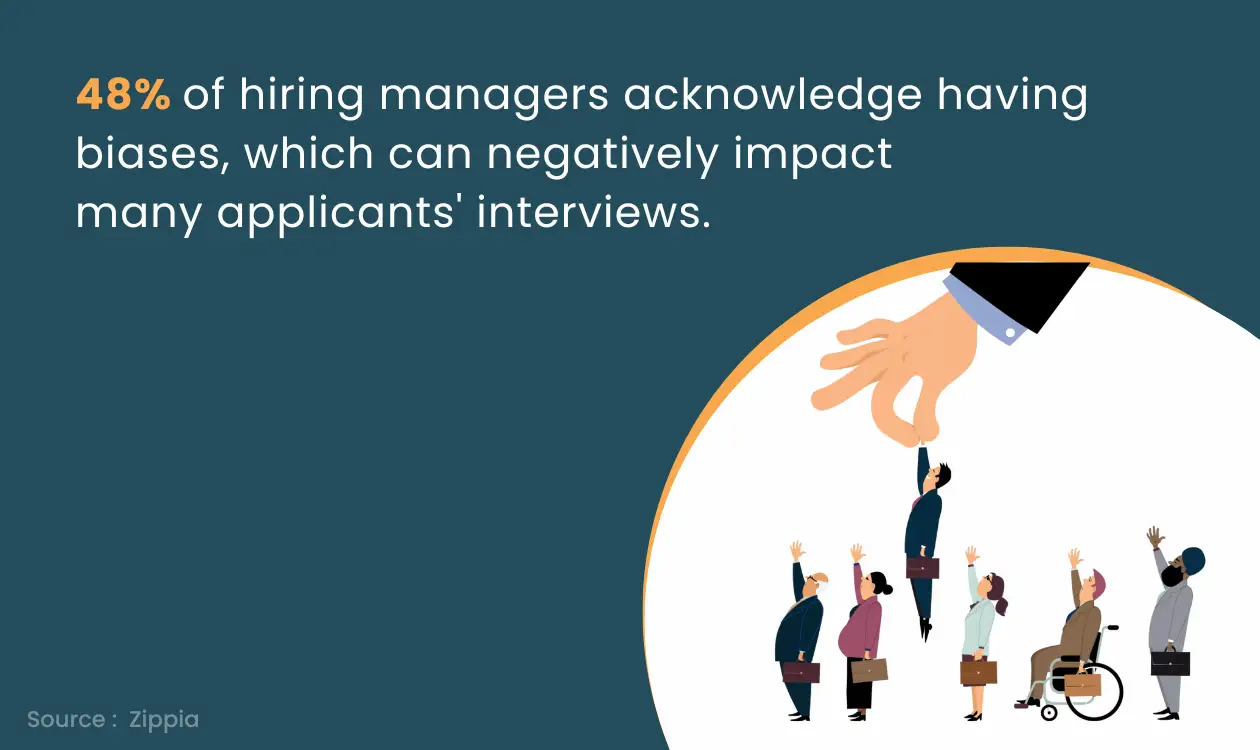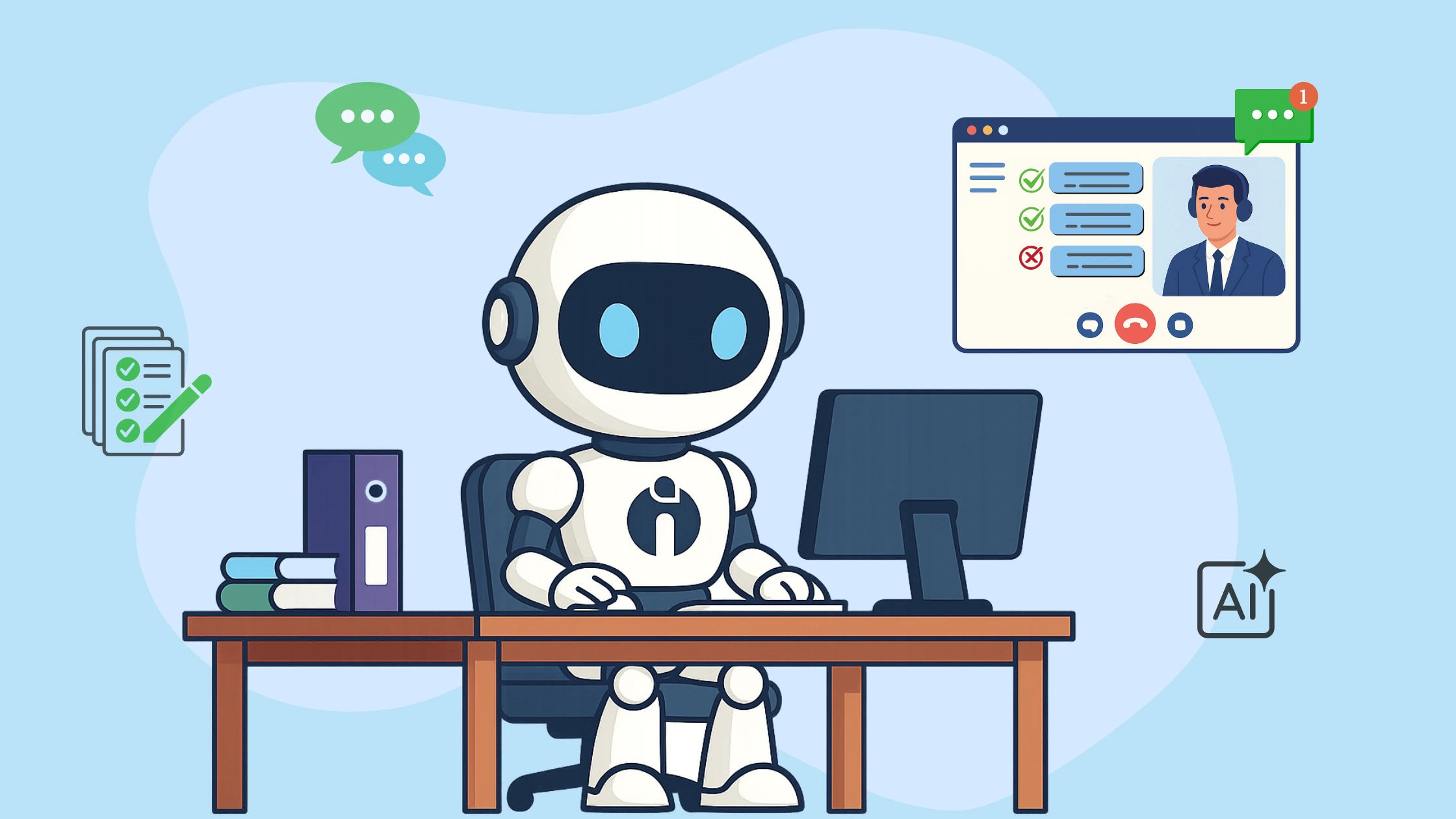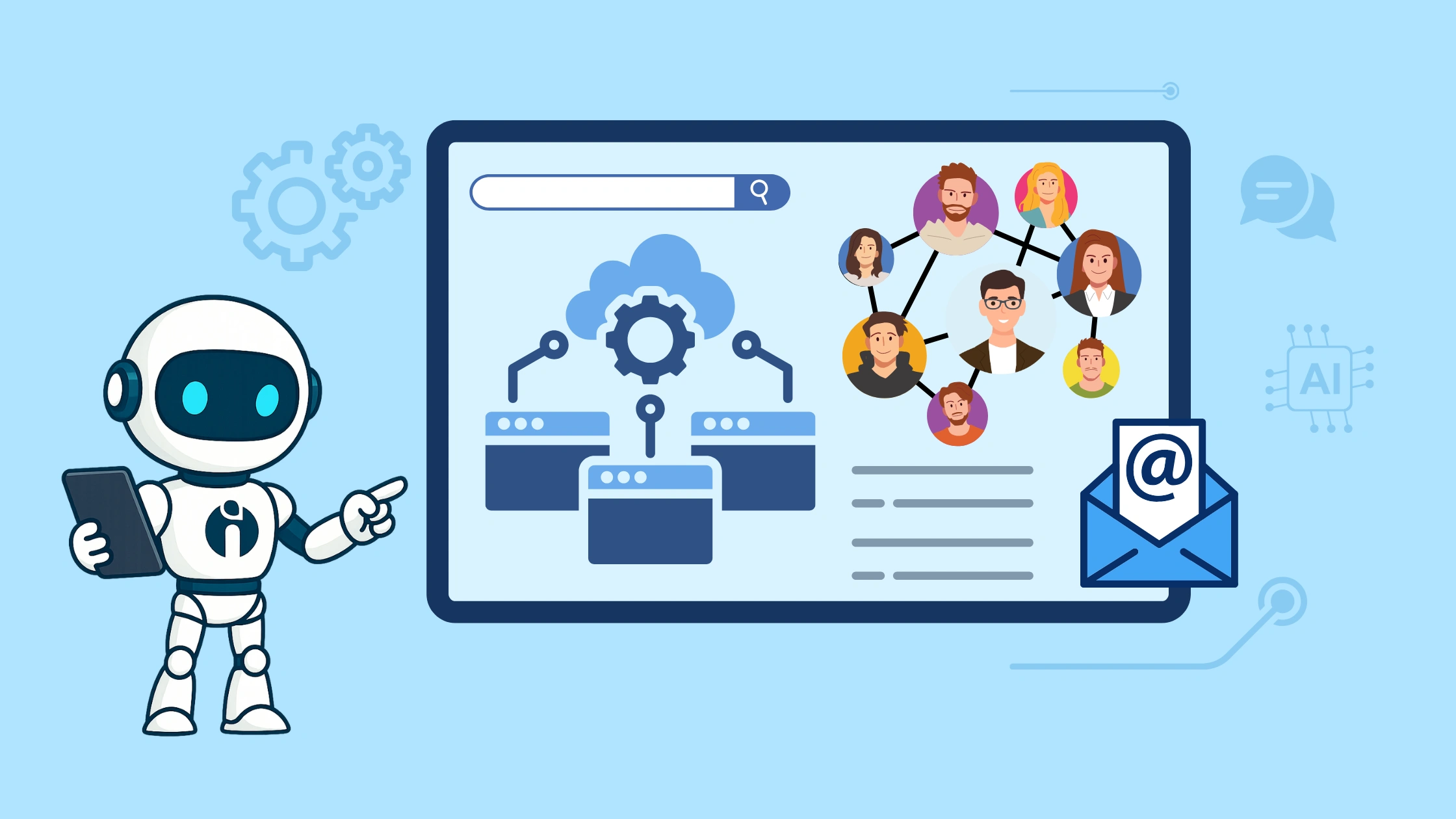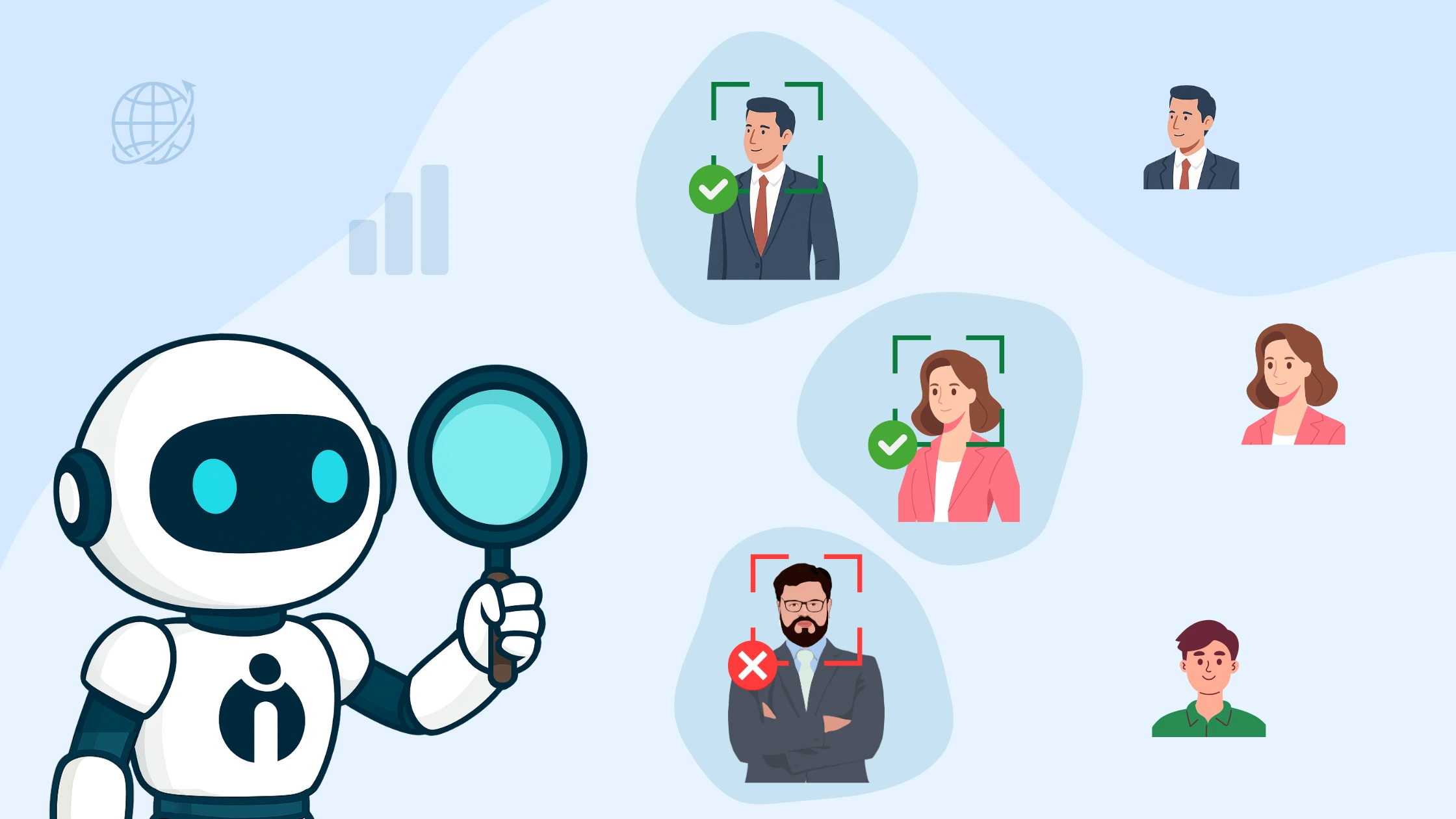TL;DR
- AI revolutionises recruitment by automating repetitive tasks and reducing unconscious bias.
- Integrating AI optimises candidate sourcing, screening, and enhances the quality of hires.
- The human touch remains crucial for evaluating cultural fit and providing personalised candidate support.
- Successful AI adoption requires careful planning, training, evaluation, and staying compliant with regulations.
Artificial intelligence (AI) has affected several industries in the ever-changing technology landscape. Recruitment is one area where AI has great potential. Traditional hiring processes confront skill shortages, time-consuming manual processes, and unconscious biases.
Fortunately, AI in recruitment can increase productivity, candidate sourcing, and human biases.
This article examines AI's potential to transform recruiting and the current trends and innovations that can future-proof your hiring process.
What is AI in Recruitment?
AI in recruiting uses innovative technology and algorithms to streamline and optimise the hiring process. It makes data-driven judgements using data analytics, machine learning, and natural language processing. These boost efficiency and candidate selection.
AI can automate resume screening and application monitoring. This approach frees up HR personnel to focus on talent acquisition strategy. It intelligently matches people to job openings based on their qualifications, experience, and talents. As a result, recruiting decisions improve.
AI-driven recruitment eliminates human biases by using objective criteria rather than subjective judgements. And this improves workplace diversity, equity and Inclusion for better culture development.
AI-powered recruitment chatbots and virtual recruiters can give candidates a more interesting and personalised application experience. In turn, this enhances their perception of the organisation.
Understanding the Revolution of AI in Recruitment
Advanced technologies are used in recruitment to speed up and optimise the employment process.
An SHRM study found that most HR departments employ AI and automation for recruitment and hiring (79%).
Other HR units use AI for learning and development (41%) and performance management (38%). Using AI in recruitment continues to grow exponentially due to its many advantages.
Firstly, it significantly improves efficiency and speed. It allows HR teams to process applications faster and quickly identify the best candidates.
It can automate repetitive tasks like resume screening and initial candidate assessment. This enables AI-powered Applicant Tracking Systems (ATS) to streamline recruitment. HR professionals can now allocate their time to more strategic talent acquisition aspects.
Secondly, AI-driven algorithms can intelligently match candidates to job roles based on their qualifications, experience, and skills. This results in better candidate sourcing and selection.
AI has access to vast databases of candidate profiles and job requirements. This enables AI in recruitment and selection to identify potential matches accurately. Recruiters save time on manual candidate finding and shortlisting. By offering data-driven insights AI report generation holds immense potential to revolutionize recruitment and selection processes.
Finally, by employing objective criteria instead of subjective judgements, AI can eliminate hiring prejudice. AI systems can minimise unconscious prejudices caused by names, gender, and education.
They do so by analysing candidate data entirely based on qualifications and performance indicators. This ensures fair and unbiased application assessment.
Companies using AI-powered recruitment software tools have reported remarkable improvements in recruitment efficiency. These include significant reductions in time-to-fill positions and cost-per-hire.
Identifying Current Recruitment Challenges
Before diving into how AI can transform recruitment, it is essential to recognise traditional hiring processes' existing recruitment challenges recruiters and HRs faces.
Talent shortages remain a persistent problem across industries, making it challenging to find the right candidates with the required skills and qualifications.
Moreover, manual recruitment procedures can be time-consuming, leading to a delayed hiring process. In turn, this causes companies to lose top talent to competitors.
Another critical challenge is the presence of unconscious biases in the hiring process.
Furthermore, 68% of recruiters believe that AI has the potential to mitigate instances of unconscious bias. This leads to enhanced workplace diversity and equity.
Best Practices in Integrating AI in Recruitment
Companies should carefully plan their adoption of AI technologies to embrace the AI revolution in recruitment successfully. Following these best practices allows you to integrate AI into your hiring process successfully.
It also allows you to leverage its transformative potential to attract, assess, and retain top talent.
1. Conduct a comprehensive assessment
Begin the integration process by assessing your current recruitment needs and pain points.
Engage with key stakeholders, HR teams, and hiring managers. This approach will help you gain insights into problem areas and where AI can make a significant impact.
Identify specific challenges, such as lengthy time-to-fill positions, manual resume screening, or lack of diverse candidate pools.
2. Identify AI-optimized areas
Based on the assessment, identify areas within the recruitment process that can benefit most from AI technology.
These include resume screening, candidate sourcing, skill assessments, video interviews, and candidate engagement. AI voice generator helps to ease the recruitment process as AI-generated voice messages and AI voice Translation become more engaging for candidates. Prioritise the integration of AI in those areas that will yield the most substantial improvements and streamline the recruitment workflow.
3. Choose the right AI tools and platforms
Selecting the appropriate AI-powered recruitment technology and tool is critical for successful integration. Consider factors like scalability to accommodate your organisation's growth and ease of integration with your existing HR systems.
Also, look for compatibility with your unique recruitment objectives. Collaborate with IT and HR experts to ensure the selected tools align with your organisation's technological infrastructure.
Consider iSmartRecruit as the ideal choice to streamline and reinforce your End-to-End Recruitment Life Cycle Process. This AI Recruitment Software integrates modern AI technology. This enhances the recruitment process from job posting to onboarding.
4. Thorough testing and evaluation
Before implementing AI solutions on a larger scale, conduct thorough testing and evaluation in pilot projects or smaller recruitment initiatives.
This will help identify potential issues and fine-tune AI algorithms. This will also ensure the tools perform effectively and produce accurate results.
Collect feedback from HR professionals and candidates to gauge the user experience. Afterwards, make the necessary adjustments.
5. Provide comprehensive training
Once the AI tools are ready for full deployment, provide comprehensive training to your HR professionals and hiring managers.
This training should cover the functionalities and features of the AI tools. It should also touch on how to interpret and act upon the data generated and how to use AI-powered insights to make informed hiring decisions.
Encourage open communication and provide ongoing support during the training process.
6. Continuous upskilling and learning
The field of AI is rapidly evolving, with new advancements and features being introduced regularly. Invest in continuous upskilling opportunities for your HR teams to stay ahead of the competition.
Support HR staff seeking to upgrade with a master’s or even a doctorate degree in psychology. Encourage them to participate in workshops, webinars, and industry conferences on AI recruitment trends.
While it’s Keeping your HR professionals well-informed enables them to adapt quickly to emerging technologies. It will also improve their recruitment strategies.
7. Monitor performance and measure success
Regularly monitor the performance of the integrated AI tools and track relevant recruitment KPIS (key performance indicators).
Analyse data on time-to-hire, candidate quality, diversity metrics, and cost-per-hire to measure the success of AI integration.
Use these insights to refine your recruitment strategy with AI and make data-driven decisions that positively impact your hiring process.
8. Stay compliant with regulations
While implementing AI in recruitment, be aware of relevant legal and regulatory requirements. Ensure that your AI tools adhere to data privacy laws, GDPR compliance and equal opportunity regulations.
This will help avoid potential bias or discrimination in the hiring process. Work with legal experts to ensure your AI practices comply with applicable labour laws and ethical standards.
Top 7 Benefits of AI in Recruitment
Artificial Intelligence (AI) has revolutionised the recruitment landscape, AI offers a plethora of advantages that enhance the hiring process for organisations.
Let's explore the seven key benefits of incorporating AI in recruitment:
1. Improved Quality of Hire
AI-powered algorithms efficiently analyse and manage candidate databases. This enables recruiters to identify the most qualified candidates for particular roles.
By making data-driven decisions, organisations can significantly improve the quality of their hires. This ensures better job role fit and long-term employee success.
2. Reduced Time to Hire
AI streamlines time-consuming tasks like resume reviewing and candidate sourcing.
This significantly reduces the time it takes to fill open positions. By automating these manual processes, recruiters can expedite the hiring process. It will also help secure top candidates before they are scooped up by competitors.
3. Better candidate experience
AI-driven recruitment offers a more personalised and engaging experience to candidates. With features like AI-powered chatbots and real-time communication, applicants receive prompt responses to their inquiries.
This creates a positive impression of the company and fosters a positive candidate experience. This healthy engagement leads to stronger employer branding.
4. Automate Tedious Manual Tasks
AI automates repetitive tasks such as interview scheduling, application tracking, and candidate communication.
This automation frees up HR professionals to focus on more strategic aspects of talent acquisition. This setup leads to increased efficiency and productivity.
5. Cost-Effective Hiring
AI in recruitment allows organisations to optimise their hiring process and minimise operational costs. AI-driven solutions streamline various recruitment stages. This reduces the need for extensive manual efforts and saves both time and money.
6. Zero ‘Talent Waste’
AI ensures that candidates are efficiently assessed and matched to the most suitable job roles. It helps eliminate the risk of overlooking qualified candidates. With AI, organisations can maximise their talent pool and minimise the chances of 'talent waste.'
7. An Optimised Recruitment Process
AI-powered recruitment tools optimise the entire recruitment life cycle. Leveraging AI algorithms for candidate selection and matching allows organisations to ensure an efficient recruitment process. This approach enhances an organisation’s hiring outcomes.
AI in Recruitment: Challenges & Ethical Considerations
Organisations must also address certain challenges and ethical considerations with AI in recruitment. The potential bias in AI algorithms is a major concern.
This could inadvertently perpetuate existing biases in hiring. Organisations must guarantee that their AI-powered talent acquisition systems are equitable, transparent, and devoid of bias or discrimination.
Another consideration is data privacy and security. AI-based recruitment processes require handling sensitive candidate information. Companies must safeguard this data to protect candidates' privacy.
Moreover, it is essential to balance AI and human involvement in the hiring process. AI can streamline and optimise recruitment. However, the human touch is still key to understanding candidates' motivations, emotions, and cultural fit.
As with any technological advancement, AI in recruitment must comply with labour laws and equal opportunity regulations. Companies should be cautious about using AI in a way that might lead to discriminatory hiring practices.
To ensure transparency and fairness, employers should provide candidates with clear explanations of how AI is used in their hiring decisions.
The Human Factor for AI in Recruitment
In AI-driven recruitment, the role of HR professionals becomes even more pivotal in creating a seamless and meaningful candidate experience. While AI can efficiently process data and automate repetitive tasks, the human touch remains essential in building authentic connections with candidates.
One of HR professionals’ key responsibilities in AI-driven recruitment is ensuring candidates have positive and engaging interactions with AI systems.
Yes, chatbots and tools for virtual recruitment can streamline the initial stages of candidate engagement. Still, HR professionals must step in to provide personalised support and address candidate concerns.
Moreover, HR professionals possess the emotional intelligence necessary to understand the nuances of human communication.
They can interpret candidates' motivations, aspirations, and preferences. AI can only analyse data and responses. However, HR professionals can pick up on subtle cues in candidate interactions that an AI system might miss.
Emphasising emotional intelligence and soft skills in hiring is vital to ensure that candidates align with the company's culture and values. HR professionals are uniquely positioned to evaluate a candidate's cultural fit, adaptability, and teamwork abilities. These are factors that significantly impact their organisational success.
In addition, HR professionals also play a vital role in nurturing a diverse and inclusive workplace. AI systems can be made objective and unbiased.
Yet, HR professionals can take proactive measures to implement strategies that foster diverse talent pipelines and inclusion.
The Future of AI in Recruitment
The future of AI in recruitment is brimming with exciting possibilities. With AI-powered technologies, companies can revolutionise their hiring processes to win and grow top talent. Here are some AI-driven recruitment trends to watch out for:
- AI-powered ATS: These systems help automate resume screening, application tracking, and candidate communication. These features make the hiring process smoother and more efficient.
- Chatbots and virtual recruiters for candidate engagement: AI-powered recruitment chatbots can interact with candidates and answer their questions. They can also guide candidates in other application matters.
- Video interviews and facial recognition for hiring: Video interviewing platforms with AI-enabled facial recognition tools can analyse candidates' expressions and body language. These facilitate the assessment of the candidate’s suitability for the role.
- AI-driven skill and personality assessments: AI can analyse candidate responses to online assessments. They can also provide valuable insights into candidates’ skills and personality traits. These results in better hiring decisions.
- Gamification and simulation in candidate evaluation: Companies increasingly use gamification and simulations. These tools help evaluate candidates' problem-solving abilities, creativity, and adaptability.
- Utilising big data for predictive hiring analytics: By leveraging big data and AI, recruiters can predict a candidate's future job performance based on past hiring trends and employee data.
Challenges in Integrating AI into Recruitment and How to Overcome Them
Integrating AI into your recruitment process might sound like a big tech leap, but it's a lot like introducing a new member to your team. You want to ensure everything runs smoothly, right?
So, let's break down some common hitches you might encounter and how to tackle them head-on.
1. Compatibility Issues: Sometimes, the new AI tools don't play nice with the older systems you've been using. It's like trying to fit a square peg in a round hole. To avoid this, you should check whether the new AI software can easily connect with your current HR systems. A good start is to choose AI tools that are known for their compatibility or that offer customisable integration options.
2. Data Migration: Moving all your existing data into a new AI system can feel challenging. It’s crucial to ensure that all your precious data is transferred accurately. You'd want to work closely with the AI vendor to plan out a detailed data migration strategy. Make sure there’s a trial run before the final move, just to be safe.
3. Training Challenges: Just like any new tool, there’s a learning curve involved with AI systems. Your team might need some time to get the hang of it. It’s a good idea to set up training sessions and have plenty of support materials handy, like user manuals or how-to videos. Regular training updates as the system evolves will also help your team stay on top of things.
4. System Overload: When you start with AI, there's a temptation to automate everything at once. But this can overwhelm your system and your people. It's better to phase in automation. Start with one or two processes, see how it goes, and gradually expand. This way, you can manage any teething problems without major disruptions.
5. Managing Expectations: It’s important to remember that AI isn't a magic wand. It’s a tool that needs fine-tuning and adjustments. Set realistic expectations with your team. Highlight that AI is here to make their jobs easier, not to replace them. With clear communication, your team will better understand and welcome the AI system.
By addressing these challenges with a clear plan and open communication, you can make the integration of AI into your recruitment process as smooth as possible.
Remember, it's all about taking it step by step and ensuring everyone is on board and comfortable with the new changes.
Embracing Tomorrow's Talent: The Synergy of AI and Human Touch in Recruitment
Embracing the AI revolution in recruitment is not just about adopting new technologies. It is a strategic approach to future-proofing your hiring process.
AI can transform recruitment by increasing efficiency. This enhances candidate experiences and promotes diversity and inclusion.
Companies can confidently navigate future AI-driven recruitment trends through training and staying abreast of ethical and legal considerations.
These should be done while preserving the human touch that makes every hire exceptional.
Elevate your recruitment game with iSmartRecruit, the best AI recruitment software designed to optimise your hiring process. It also helps foster candidate engagement and deliver unparalleled results. Experience the power of AI while maintaining the human element in your recruitment journey. Try iSmartRecruit today and unlock the full potential of your hiring process.
Happy Recruiting with AI Companion!!
FAQs - AI in Recruitment
1. How is AI used in recruitment processes?
AI is used in recruitment processes to automate tasks like resume screening and candidate sourcing. It also helps identify the best-fit candidates based on their qualifications and skills. This approach reduces human bias and improves efficiency.
2. AI recruitment vs recruitment automation?
AI recruitment uses artificial intelligence to streamline and optimise various aspects of the hiring process, while recruitment automation encompasses broader automation of repetitive tasks in recruitment. AI recruitment goes beyond automation, utilising advanced algorithms to make data-driven decisions for better candidate matching and selection.
3. Why is AI onboarding good for new hires?
AI onboarding for new hires improves the onboarding experience by providing personalised training plans, real-time feedback, and interactive modules. It helps new employees adapt faster to their roles, enhances their engagement, and boosts retention rates.
4. Why is iSmartRecruit the best AI recruitment software?
iSmartRecruit is considered the best AI recruitment software due to its seamless integration of modern AI technology at every stage of the recruitment process. It optimises candidate sourcing and improves the quality of hire. It also reduces time-to-fill positions and provides a user-friendly experience for recruiters and candidates. These features make it a top choice in the market.








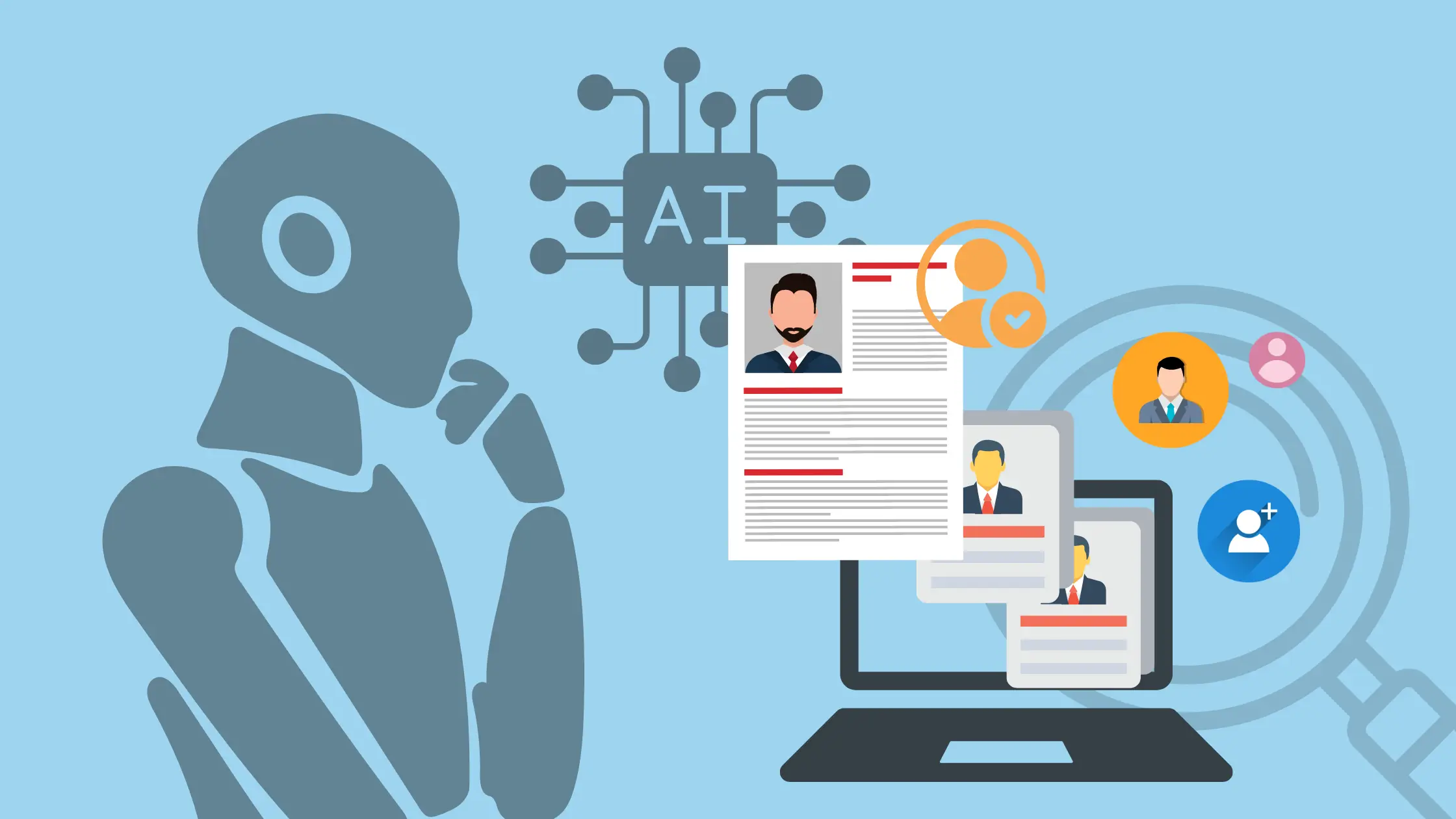
1.png)
